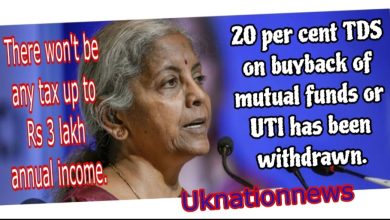Russian invasion adversely impacts the Indian economy with inflationary pressures mounting

In view of the ongoing massive war between Russia and Ukraine, with no signs of the war between the two nations coming to an end, the Indian economy is bound to witness tremendous inflationary pressures as a result of surge in the international price of crude oil going to 120 dollars a barrel for the very first time in the last several years. Since India imports about eighty percent of its requirements with major imports from Russia as well like jewels, crude, wheat, edible oils n will futher other items the surge in crude prices have adversely impacted the Indian economy with inflation skyrocketing in the coming days also putting immense impact on the fiscal deficit as well as the current account of the country.
According to an editorial in Indian Express the Macroeconomic Environment has changed considerably from the time finance minister Dr. Nirmala Sitaraman presented the Union budget on 2022 and Reserve Bank of India released its inflation forecast for the upcoming fiscal year. It added that after the crude prices surging significantly higher than those factored in the Union budget and RBI calculations, navigating the present uncertain economic environment will require deft management by the monetory and fiscal authorities. According to the IE editorial since November last year when the price of Indian crude oil basket stood at 80.64 dollars, the oil marketing companies have refrained from revising pump prices despite the very fact that the global prices of crude oil continued rising. However, after the assembly elections in five states, the fuel prices of tge pumps are bound to increase and as per the ICICI securities report the prices of petrol, diesal etc are likely to go up by Rs. 22 a litre further having adverse consequences on all round inflation thus fuel prices likely to spend the central bank’s optimistic inflation trajectory says the Indian Express editorial. Not only this but the surge in prices will further reduce the freedom of spending by the house holds with governments probably lowering fuel tax to bear the aditional burden of the consumers by lowering taxes. These higher oil prices will further enhance imports adversely impacting the current account deficit by increasing it multiply especially when the global financial conditions are tightening tremendously. The recent statistical date also unambiguously reveals that the merchandise trade deficit to has already widened from 17.9billiin dollars to 21.2 billion dollars in February with much of the hike driven by crude oil internationally. Subsequently the rupee is also devaluing adding to inflationary pressures finally also bringing down the economic growth from 5.4% to 4.8% in the previous year with LIC’s initial public offering being postponed to the next financial year.





